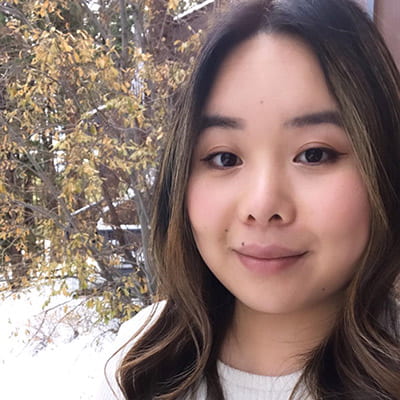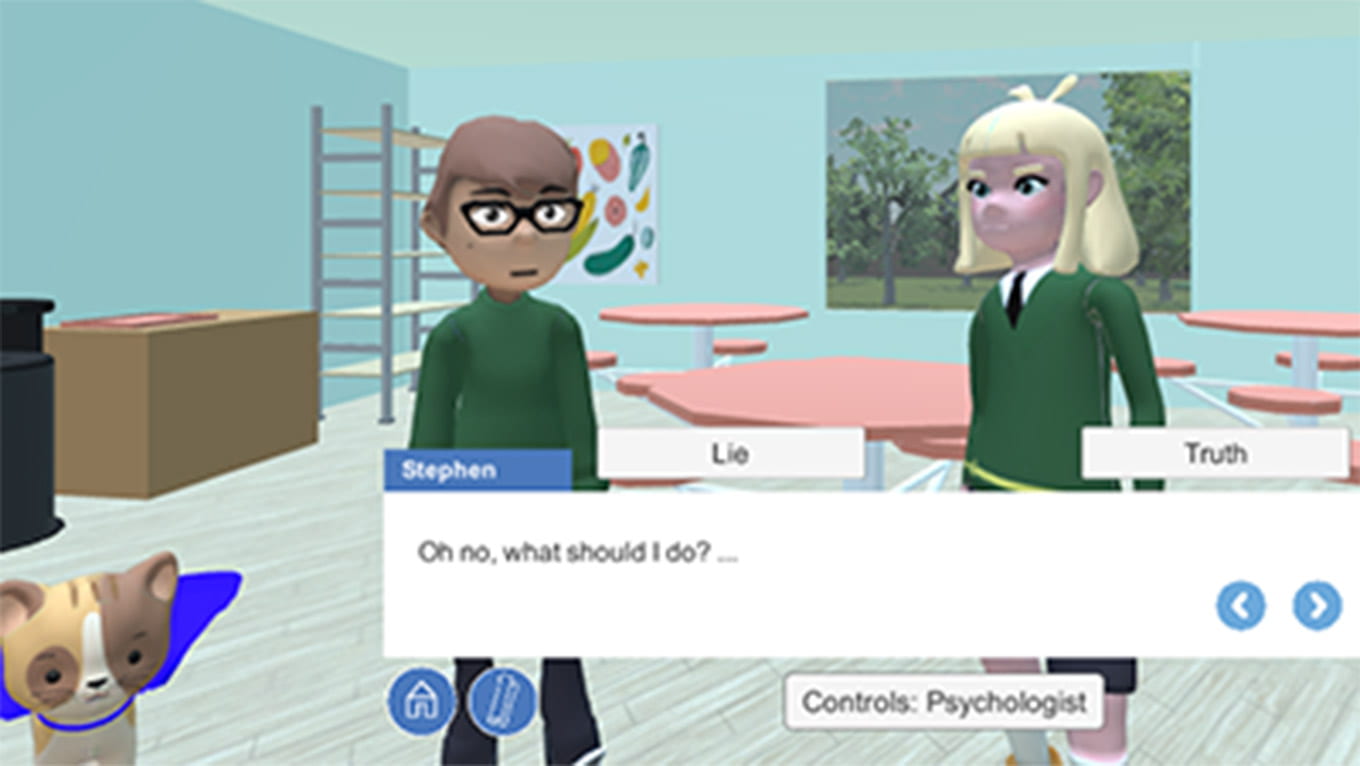
At the core of computational media Ph.D. candidate Tiffany Thang’s work is a passion for helping others, particularly populations living with special needs and disabilities.
Her current research in Computational Media Professor Sri Kurniawan’s ASSIST Lab focuses on the design, development, and evaluation of virtual reality (VR) games to support individuals living with special needs and disabilities develop self-confidence, self-esteem, and socioemotional skills.
From an early age, Thang, who received her bachelor’s degree in cognitive science and bioengineering from UC Santa Cruz, had an interest in finding ways she could blend engineering with psychology to benefit others. After her undergraduate education experience, she was inspired to dive deeper into the computational media space to make a positive social impact.
When Thang first joined the ASSIST Lab as an undergraduate student, she worked with then-graduate student Lourdes Morales on developing a software program that helps people who are blind format word processing documents.
“Through this project, Lourdes was not only empowering herself, as she was soon going to lose her eyesight completely, but others as well to be able to work independently,” Thang said. “The mentorship I received from her and Sri had a huge impact on what I decided to do after getting my undergraduate degree. I wanted to carry forward that empowerment for populations living with special needs.”
Thang is currently involved in two major research projects. The first is a serious VR game being developed in collaboration with SmileTrain, a global nonprofit organization that provides treatment and services for children living with cleft lip and/or palate.
The two-person game offers real-life simulations that aim to help pre-teens with cleft lip and/or palate build self-esteem and confidence, which is especially important after they undergo surgery and then continue speech therapy to improve speech intelligibility.

SmileTrain previously partnered with the ASSIST Lab to develop VR-based speech therapy games for individuals with cleft lip and/or palate, but this new game helps SmileTrain patients address two other important needs: building their self-confidence and having access to a fully remote learning program.
The game is currently in the user testing phase by psychologists and their patients in several countries, including the Philippines, Colombia, Brazil, and Mexico.

Thang’s other project seeks to support adults living with developmental disabilities in improving their socioemotional and independent living skills. In partnership with the nonprofit organization Hope Services, Thang plans to design a game that helps individuals practice potentially challenging situations they may face on their own to build the skills needed for a successful and fulfilling life.
“There are a lot of VR games that focus on social skills and vocational training, but not a lot of games that focus on what the actual individuals want to work on and what their broader life goals are,” Thang said.
Thang spent three years chasing after an NSF grant to secure funding for this research, and was able to get one less than a year ago.
“This research is really important. Adults living with disabilities need resources too. Resources can’t just stop once they turn 18.” Thang explained. “I was so happy to see our funding finally get approved.”
Thang is still in the data collection phase for this project. She’s spending time with Hope Services clients to learn more about them, what their goals are, and what they need help with most to achieve those goals. She then hopes to pass the momentum onto one of the 15 students she is mentoring when she graduates in spring 2023.
“Tiffany is an example of a high-flying graduate student who does research with direct societal impact. She is a great inspiration to other students,” Kurniawan said.
When asked about the mentorship she provides to Baskin Engineering undergraduate students, Thang said, “I think it’s very important to pass on the mentorship I received so students have the guidance on continuing their work into a graduate program or into a role in industry. It’s also important to be inclusive of any student that wants to help, regardless of their level of experience.”
As Thang nears the end of her Ph.D. program, her goal is to find an organization to work with that aligns with her values of creating technology for social good.
Visit Thang’s website to learn more about her current and past research projects.
This block group hides your featured image, remove this block group to show your featured image again.




